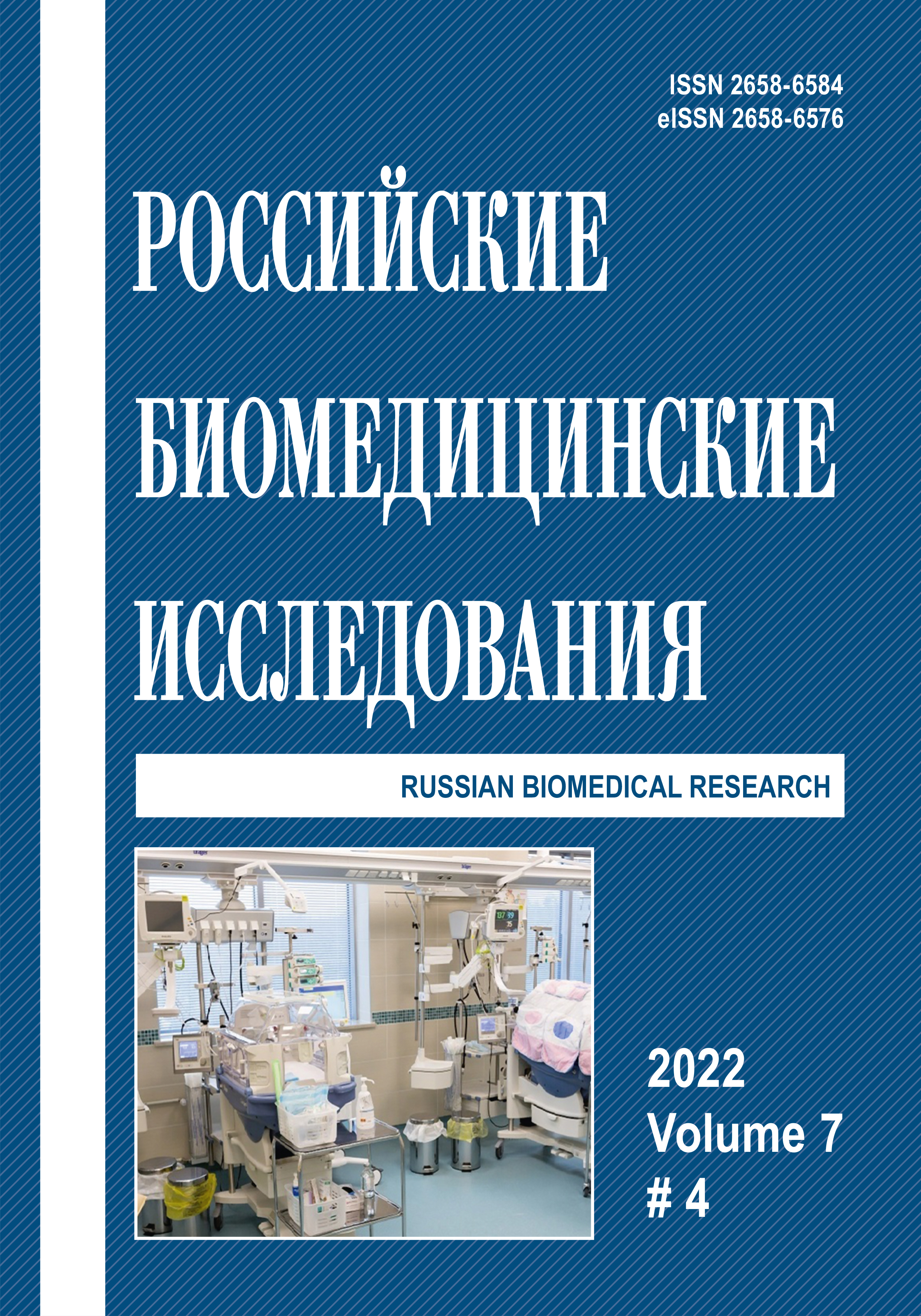Influence of fluid overload after coloesophagoplasty on the duration of intensive care unit stay, duration of mechanical ventilation and lung function in children
Abstract
Background. Fluid overload in the perioperative period can be a factor of an unfavorable outcome, leading to organ damage. Aim. To assess the effect of fluid overload on the length of intensive care unit stay, the duration of mechanical ventilation, and lung function in the early postoperative period in children after coloesophagoplasty. Methods. Retrospective study of 40 children 12.0 (10.0; 18.0) months old weighing 9140.0±1444.1 g. Fluid overload is the ratio of the difference between injected and discharged fluid, and weight (in %). We evaluated the ventilation parameters, the duration of mechanical ventilation, and the duration of intensive care unit stay. Results. A weak positive correlation was found between total fluid overload and fluid overload in the ICU on the 1st day, on the one hand, and the duration of mechanical ventilation and the duration of stay in the ICU, on the other. SvO2 on the 1st day had a weak negative correlation with intraoperative fluid overload. SvO2 on the 2nd day had a weak negative correlation with fluid overload on the 1st day in the ICU. SvO2 levels on 2nd and 3rd days correlated with total fluid overload on the 1st day (R=-0.414 and R=0.402, respectively). Pin on the 1st day weakly correlated with intraoperative fluid overload, with fluid overload on the first day in the ICU. Pin on 1st and 2nd days correlated with total fluid overload. SpO2 on 3rd day correlated with intraoperative fluid overload, with fluid overload on the first day in the ICU. SpO2 levels on 2nd and 3rd days correlated with intraoperative fluid overload. The level of hemoglobin on 2nd day correlated with fluid overload on the 1st day in the ICU. All these correlations were weak and statistically significant (p >0.05). Children with fluid overload <5% and >5% did not differ in the length of stay in intensive care unit and the duration of mechanical ventilation. Conclusions. Fluid overload affects intensive care unit length of stay and duration of mechanical ventilation and harms lung function in the early postoperative period.



